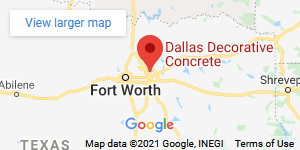Revamping your pool area can breathe new life into your outdoor space, and pool deck resurfacing is a key step in that transformation.
This article explores what pool deck resurfacing is, why it’s essential, and the many benefits it offers.
It also discusses how often you should consider resurfacing, highlights the most popular designs in Dallas, and guides you through important factors to consider when choosing a resurfacing option.
Whether you’re aiming for durability or aesthetics, there’s something here for everyone looking to enhance their poolside experience.
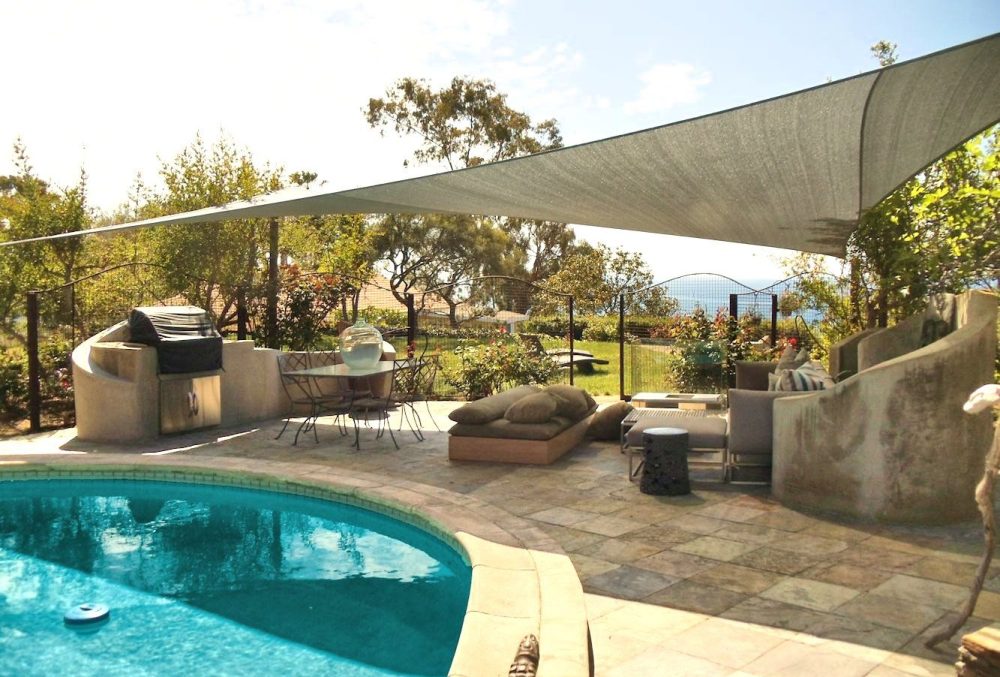
What Is Pool Deck Resurfacing?
Pool deck resurfacing is a critical process that involves applying new materials or coatings to an existing pool deck in order to rejuvenate its appearance, enhance safety, and prolong its lifespan.
In the Dallas area, homeowners often consider this option as part of their pool remodeling projects, ensuring that their outdoor living spaces not only look inviting but are also functional and safe for family and friends.
The resurfacing process can address various issues such as cracks, structural problems, and can significantly upgrade the overall aesthetic appeal of the pool area.
Why Is Pool Deck Resurfacing Important?
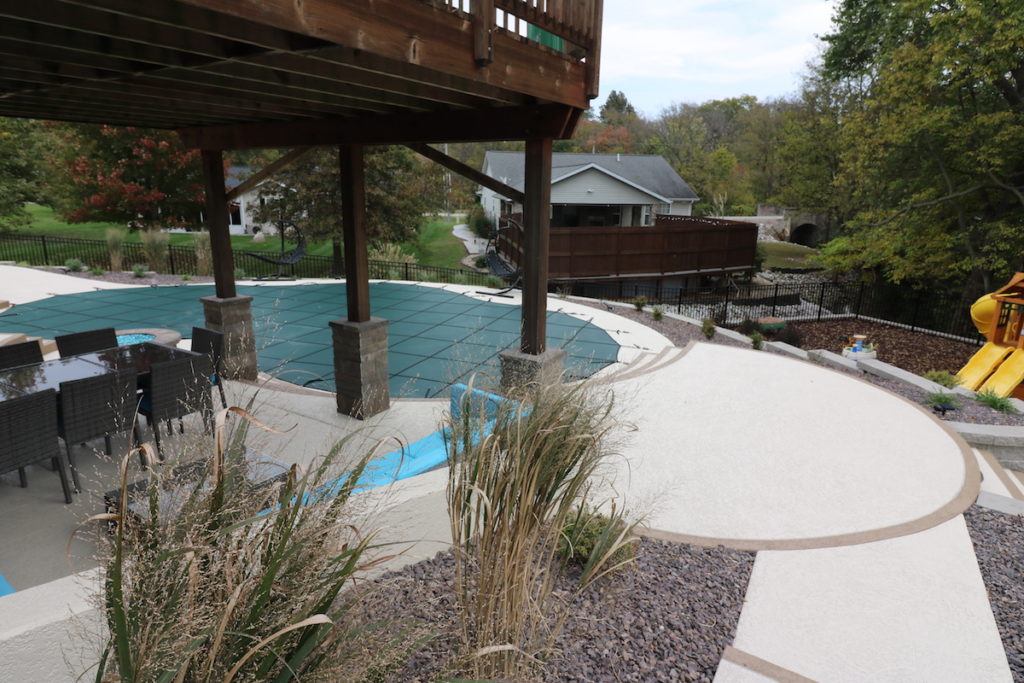
Pool deck resurfacing Dallas is important for several reasons, particularly for homeowners in Dallas who want to maintain the integrity and safety of their outdoor living spaces. Over time, pool decks can suffer from wear and tear, leading to cracks and structural problems that can compromise safety.
Resurfacing not only addresses these issues but also enhances the aesthetics of the pool area, making it more inviting and enjoyable for gatherings and relaxation.
What Are the Benefits of Pool Deck Resurfacing?
The benefits of pool deck resurfacing encompass a range of improvements that can significantly enhance the functionality and appearance of your pool area.
Not only does resurfacing address safety concerns by eliminating cracks and creating a more stable surface, but it also offers aesthetic upgrades that can transform the overall look of your outdoor space.
Resurfacing can improve durability, ensuring that your pool deck stands up to the elements while requiring less maintenance over time.
When considering the advantages of resurfacing, it’s crucial to recognize its role in boosting overall safety around your pool. By eliminating potential tripping hazards, homeowners can create a safer environment for family and guests.
The improved aesthetics can significantly elevate the ambiance of your backyard, turning it into an inviting oasis.
In terms of durability, resurfaced decks can withstand extreme weather conditions, thereby extending their lifespan and reducing the frequency of repairs.
- Lower maintenance costs further enhance the appeal, as these surfaces often require less upkeep compared to traditional materials.
- This means that homeowners can enjoy their outdoor space without the stress of constant repairs and upkeep.
Investing in pool deck resurfacing is a wise choice for anyone looking to improve their outdoor area effectively.
Lorem ipsum dolor sit amet, consectetur adipiscing elit. Ut elit tellus, luctus nec ullamcorper mattis, pulvinar dapibus leo.
How Often Should You Resurface Your Pool Deck?
Homeowners in the Dallas area often wonder how frequently they should consider pool deck resurfacing and maintenance of their residential floors Dallas, as it can greatly impact the longevity and appearance of their outdoor spaces.
Generally, it is advisable to resurface your pool deck every 5 to 10 years, depending on factors such as the material used, climate conditions, and the extent of wear and tear.
This regular maintenance ensures that the pool area remains safe and visually appealing, providing a comfortable space for relaxation and entertainment.
The frequency of resurfacing can notably vary based on several key factors:
- Climate: In regions with extreme temperatures, such as those found in Dallas, exposure to heat and humidity can accelerate wear. Homeowners should be vigilant about visible cracks or peeling.
- Usage: A heavily used pool deck may require more frequent attention than one that is only occasionally visited, as frequent foot traffic can cause surfaces to degrade quicker.
- Materials: Different materials have varying lifespans; for instance, concrete decks typically last longer than plaster ones but may show signs of wear sooner.
To determine when resurfacing is necessary, homeowners should regularly inspect their pool decks for:
- Cracks or chips
- Discoloration or fading
- Rough textures that can pose safety risks
By keeping an eye on these signs, a homeowner can ensure their outdoor space remains inviting and safe for all.
What Are the Popular Pool Deck Resurfacing Designs in Dallas?
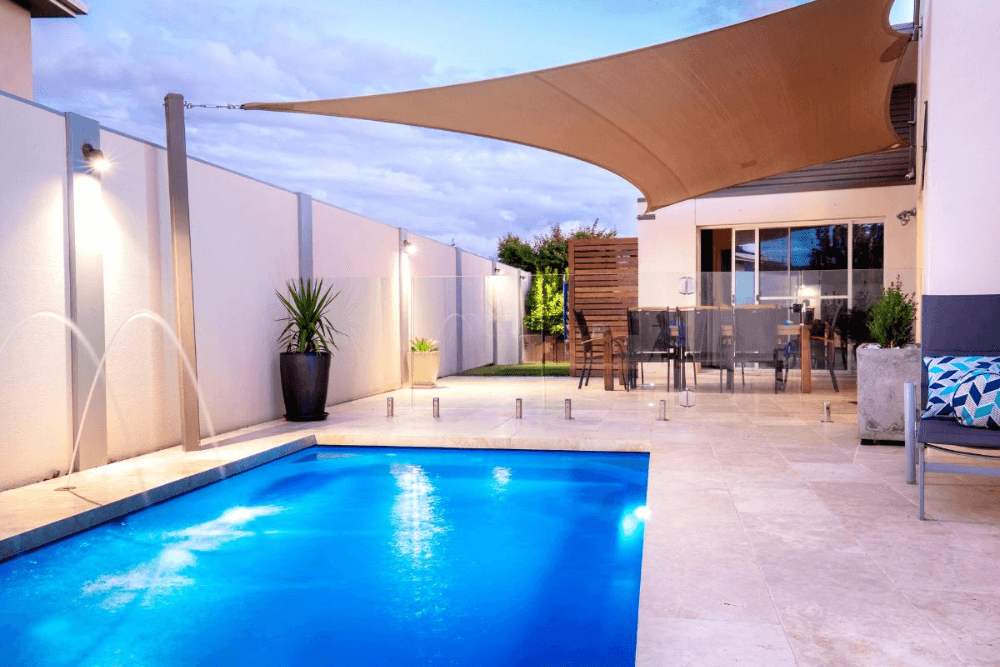
In the Dallas area, Dallas Decorative Concrete options for pool deck resurfacing cater to a variety of aesthetic preferences and functional needs, allowing homeowners to create stunning outdoor living spaces.
Among the most sought-after options are stamped concrete, which provides the look of natural stone at a lower cost, and pavers, known for their durability and ease of repair.
These designs not only enhance the visual appeal of the pool area but also contribute to a seamless integration of elements like outdoor kitchens and lounging spaces.
Stamped Concrete
Stamped concrete is a highly popular choice for pool deck resurfacing in the Dallas area, as it allows homeowners to achieve the appearance of costly materials like stone or tile without the corresponding price tag.
This durable option can be customized in a variety of designs and colors, enhancing the overall aesthetics of the pool area while offering a long-lasting surface that requires minimal maintenance.
Its versatility in design means that homeowners can select patterns ranging from classic cobblestone to modern geometric shapes, making it easy to tailor to any landscape. The extensive palette of color options enables creativity, allowing for unique combinations that can complement the surrounding architecture.
In a climate like Dallas, where the weather can be harsh, stamped concrete pool deck stands out for its remarkable durability, resisting cracking and fading even under intense heat.
- Low Maintenance: Unlike traditional materials, stamped concrete requires less upkeep, proving to be cost-effective in the long run.
- Slip Resistance: Ideal for pool decks, it can be textured to provide a safer surface, giving users peace of mind during leisure activities.
- Longevity: With proper installation and sealant application, these surfaces can last for many years, ensuring that the initial investment pays off significantly.
Thus, opting for stamped concrete not only elevates the aesthetic appeal of a pool area but also aligns with practical considerations suited for the local environment.
Stained Concrete
Stained concrete is another attractive option for concrete pool deck resurfacing, providing homeowners with a way to enhance their pool area with rich colors and unique patterns.
This technique not only revitalizes older concrete surfaces but also allows for various aesthetics that can match any outdoor decor or personal style.
The beauty of stained concrete lies in its versatility; it offers a myriad of color options that can be mixed and matched to achieve the perfect ambiance.
Homeowners can choose from earthy tones to vibrant hues, making it adaptable to individual preferences.
Custom patterns can elevate the aesthetic appeal, from elegant, swirling designs to geometric shapes, creating a stunning visual impact.
Not to mention, these surfaces require minimal maintenance compared to traditional materials, only needing occasional sealing to keep them looking fresh.
Thus, stained concrete presents a practical yet stunning choice for enhancing any outdoor environment.
Pavers
Pool deck pavers are a favorite choice for those seeking both durability and aesthetic appeal in their resurfacing projects. Available in various shapes, sizes, and colors, pavers can create a beautiful and functional outdoor space that complements the overall design of the home and pool area.
One of the standout attributes of pool deck pavers is their exceptional durability; they are designed to withstand the harsh effects of weather, foot traffic, and the occasional poolside party. This means that over time, they hold up noticeably better than other materials.
In case of damage, repairing or replacing individual pavers is hassle-free, allowing homeowners to maintain their investment without extensive costs.
Flagstone
Flagstone is a natural stone option that can bring a rustic and elegant touch to any pool deck, making it a popular choice in the Dallas area for homeowners seeking a unique aesthetic. Its durability and ability to withstand varying weather conditions make it an excellent choice for pool deck resurfacing.
Utilizing flagstone not only enhances the visual appeal of outdoor spaces but also provides a long-lasting surface that requires minimal maintenance, which is a consideration for homeowners in the Dallas area.
This natural material is available in various colors and textures, allowing homeowners to customize their designs to match their decor.
- Its slip-resistant surface ensures safety around pools.
- Easy installation options range from mortar set to dry lay methods, accommodating any landscaping preference.
- Flagstone beautifully complements various outdoor themes, from modern aesthetics to traditional gardens.
By choosing this material, one creates an inviting atmosphere that encourages outdoor living, making it the ideal choice for enhancing lifestyle and property value.
Natural Stone
Natural stone is a luxurious option for pool deck resurfacing, offering a sophisticated look that can elevate the entire outdoor living space. Known for its exceptional durability, natural stone can withstand the elements while providing a unique aesthetic that varies from stone to stone.
When considering the use of this material, it’s essential to recognize its numerous advantages.
- Its inherent qualities not only contribute to an impressive visual impact but also ensure longevity.
- Unlike synthetic materials, natural stone remains resilient against wear and tear, making it ideal for high-traffic areas.
- Maintenance must be factored in, as sealing may be needed to preserve its beauty and prevent staining.
Installation is another consideration; working with professionals who have experience with natural stone will guarantee that the installation process respects the stone’s characteristics and enhances the overall outdoor ambiance.
Ultimately, investing in natural stone fosters an inviting atmosphere while elevating the aesthetic appeal of any outdoor living area.
Exposed Aggregate
Exposed aggregate is an increasingly popular choice for pool deck resurfacing, offering a textured look that is both attractive and slip-resistant.
This option combines cement with decorative stones, creating a unique surface that enhances the aesthetics of any pool area while providing a durable finish.
This versatile choice not only elevates the visual appeal of the space, but also boasts functional benefits that make it a practical option for homeowners. With its slip-resistant surface, exposed aggregate enhances safety around the pool, reducing the risk of accidents—a crucial consideration for families and guests alike.
- Design options are plentiful; homeowners can choose from a variety of stone colors and sizes to create a customized look that complements their outdoor decor.
- The textured surface enhances drainage, preventing water pooling and ensuring a safe environment.
- It fits seamlessly into any landscaping style, from contemporary to rustic, serving as an ideal backdrop for sun loungers, outdoor kitchens, or lush greenery.
Incorporating exposed aggregate into the overall pool area design can transform an ordinary space into a visually appealing oasis, making it a smart investment.
What Are the Factors to Consider when Choosing a Pool Deck Resurfacing Design?
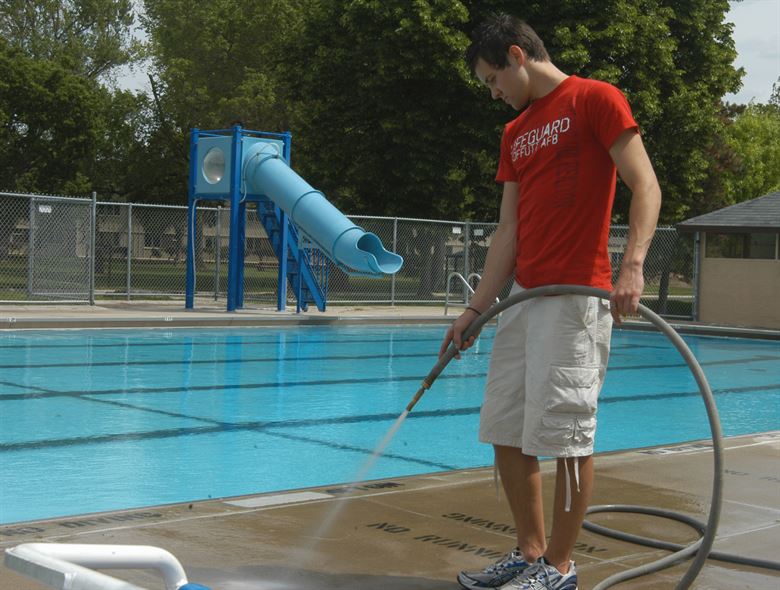
When choosing a pool deck resurfacing design, homeowners must consider several critical factors that will affect both the longevity and visual appeal of their outdoor living spaces.
Key considerations include design preferences, durability against environmental elements, maintenance requirements, cost implications, and safety features to ensure a safe environment around the pool area.
Each of these components plays a vital role in determining the most suitable pool deck resurfacing option for your unique needs.
Durability
Durability is one of the most important factors to consider when choosing a pool deck resurfacing option, as it directly impacts how well the material will withstand the elements and the test of time.
Homeowners in the Dallas area should choose materials known for their weather resistance and longevity to ensure a long-lasting pool deck that remains aesthetically pleasing.
It’s essential to explore the range of materials available, each offering unique features geared towards longevity and resilience. Various options, such as concrete pool deck overlays, stone pavers, and composite decking, provide homeowners with the flexibility to select what best suits their needs.
- Concrete overlays: Known for their strength, these can handle fluctuations in temperature while being resistant to cracking.
- Stone pavers: Offering an elegant finish, these materials are not only robust but also naturally effective in dispersing heat, making them ideal for warm climates.
By understanding these options, homeowners can select the ideal resurfacing material that will enhance their pool area while ensuring longevity and adaptability.
Aesthetics
Aesthetics play a crucial role in the decision-making process for pool deck resurfacing, as homeowners want their outdoor spaces to complement their overall home design and landscaping. With a variety of colors and designs available, choosing the right aesthetic can significantly enhance the visual appeal of the entire pool area.
When selecting resurfacing materials, individuals must consider how different textures and patterns will harmonize with their vision for the space. For instance, color options can evoke various moods, from serene tones that encourage relaxation to vibrant hues that create an inviting atmosphere for social gatherings.
Patterns, such as stamped designs or intricate mosaics, can also add an artistic touch that reflects personal style.
- Textures range from smooth finishes ideal for modern themes to rustic looks that suit traditional homes.
- It’s essential to align these choices with the overall landscape, ensuring that every element feels cohesive.
Ultimately, focusing on aesthetics not only beautifies the pool deck but also enhances the outdoor experience, inviting more enjoyment from family and friends.
Maintenance
Maintenance is a key consideration when selecting a pool deck resurfacing option, as some materials require more upkeep than others. Homeowners should evaluate the ease of maintenance alongside the aesthetic appeal to ensure they choose a material that fits their lifestyle and willingness to perform upkeep.
Choosing the right resurfacing material involves more than just aesthetics. For instance, concrete and stone options may offer durability but can demand considerable effort in terms of sealing and cleaning to prevent cracking or fading.
On the other hand, rubber or synthetic materials provide a low-maintenance solution, requiring only occasional rinsing to keep their appearance intact.
Here’s a quick overview:
- Concrete: Requires sealing every few years.
- Stone: Needs regular cleaning and occasional sealing.
- Rubber: Minimal cleaning, very low upkeep.
- Synthetic: Easy to clean, does not fade.
By understanding these maintenance requirements, one can better align pool deck choices with personal commitment to upkeep.
Cost
Cost is an essential factor in the decision-making process for pool deck resurfacing, as homeowners must budget for both materials and labor involved in the project. Understanding the price range for different resurfacing options can help homeowners make informed decisions about their pool area renovations.
When considering the various resurfacing materials, such as concrete overlays, pavers, or epoxy coatings, it’s crucial to evaluate not only the material costs but also the labor expenses associated with each choice.
Homeowners should research average prices for both components, noting that cheaper materials might save money upfront but could lack durability, leading to more frequent repairs in the long run.
- For instance, Dallas epoxy floor tends to be less expensive initially, but the long-term maintenance might offset those savings.
- In contrast, pavers provide an aesthetic appeal and longevity, often justifying the higher initial investment.
Effective budgeting can be achieved by obtaining quotes from multiple contractors and assessing customer reviews to ensure they get the best value for their investment while keeping their vision for the outdoor space intact.
Climate
The climate in the Dallas area plays a significant role in determining the best pool deck resurfacing options, as certain materials and designs may perform better under specific weather conditions.
Homeowners should consider whether the resurfacing material can withstand the heat and humidity typical of the region to ensure a lasting and attractive pool area. Understanding local environmental factors is crucial.
For example, the intense summer sun in Dallas can cause certain materials to fade or become damaged over time. This necessitates careful selection; homeowners might look at options like stained concrete or ceramic tile, which have proven to endure the high temperatures and occasional heavy rains effectively.
Ultimately, selecting the right material can significantly enhance the durability and aesthetic appeal of any pool area, allowing for enjoyable outdoor living, even amidst the challenges posed by local climate in the Dallas area.
Safety
Safety is a paramount concern when choosing a pool deck resurfacing option, particularly for families with young children or pets, and consulting with pool experts can provide valuable insights.
Selecting materials that are slip-resistant and provide a secure surface around the pool area is essential to minimize the risk of accidents and ensure a family-friendly environment.
It’s not just about aesthetics; the right choices can significantly impact the overall safety of outdoor spaces. When considering pool deck resurfacing, factors such as texture, material composition, and water drainage play vital roles.
Materials like rubberized surfaces or textured concrete are particularly beneficial, offering superior grip even when wet, making them ideal for any concrete pool deck resurfacing project.
- Slip-resistant qualities: Ensuring that the pool deck remains safe during rainy or splashed conditions is crucial.
- Heat resistance: Some materials can also help reduce heat retention, making the surface comfortable to walk on.
- Durability: Opt for long-lasting materials that withstand wear and tear while maintaining their safety features over time.
By prioritizing these elements, homeowners can create a safe and enjoyable outdoor environment for everyone, potentially enhancing their outdoor space with features like a pergola or cabana.
Read our Related Articles: Safety Features Every Dallas Pool Deck Should Have

